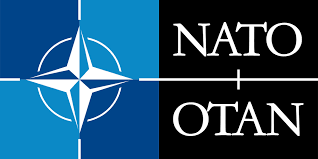
As NATO marks its 75th anniversary, it’s crucial to reflect on its journey, the transformations it has undergone, and the challenges it faces today. Founded on April 4, 1949, the North Atlantic Treaty Organization (NATO) was born out of necessity, framed by the desire for peace and security in a world freshly scarred by the devastation of World War II.
Its founding principle was simple yet profound: an attack on one is an attack on all. This principle of collective defense has since been the bedrock of the Alliance, ensuring that an attack against one ally is considered an attack against all allies, a deterrent that has ensured the security and freedom of its members for three-quarters of a century. The world of 1949 was a vastly different place, but the threats that led to NATO’s creation still resonate today. The Alliance was a response not just to the geopolitical situation of the time but to a deeper understanding that peace and security are best maintained through cooperation and shared commitment to democratic values, liberty, and the rule of law. Over the years, NATO has expanded its membership, welcoming nations that share these values, thus extending its security umbrella and fostering a broader zone of peace and democracy in Europe and beyond.
NATO’s “Open Door” policy has been instrumental in this process, helping to spread democracy and prosperity across Europe. The accession of former Warsaw Pact countries and others has underscored NATO’s role not just as a military alliance but as a catalyst for political and democratic reform. This expansion has not been without its controversies and challenges, especially from Russia, which views NATO’s enlargement as a threat to its sphere of influence.
Nevertheless, NATO’s commitment to open doors has fundamentally transformed the European security landscape for the better. The Alliance has continually adapted to the changing nature of global threats. From the Cold War’s existential standoff to peacekeeping missions in the Balkans, and from the post-9/11 counterterrorism operations to cyber and hybrid warfare threats, NATO has strived to stay ahead of emerging challenges. This evolution is a testament to NATO’s enduring relevance and its ability to respond collectively to any threat to its members’ security. The recent conflict in Ukraine has brought war back to Europe and underscored NATO’s critical role in contemporary security challenges. The Alliance’s support for Ukraine, through major deliveries of weapons, ammunition, and equipment, reflects its commitment to supporting democracy and sovereignty against aggression. While not directly involved in the conflict, NATO’s assistance to Ukraine highlights the delicate balance the Alliance must maintain in supporting global peace and security without escalating conflicts.
s we celebrate NATO’s achievements, it is clear that the Alliance must not rest on its laurels. The world today is more interconnected yet more contested than ever. The challenges ahead— ranging from cyber-attacks and hybrid threats to climate change and rising authoritarianism— demand a unified and innovative approach. NATO’s continued adaptation, including embracing new technologies and enhancing its cyber defense capabilities, is vital for its members’ security.
Moreover, the commitment to increased defense spending by a record number of Allies meeting NATO’s 2 percent of GDP target this year is a positive development. This commitment is crucial not only for deterring aggression but also for ensuring the Alliance has the capabilities to face new and evolving threats. As NATO looks to the future, it must continue to invest in its collective defense, not just in terms of military capabilities but also in strengthening the democratic and social bonds that unite its members. As NATO commemorates its 75th birthday, it stands as a testament to the strength of collective will and determination. The Alliance’s history is not just one of military deterrence but of a continuous struggle for peace, democracy, and shared prosperity. In a world of complex and interconnected threats, NATO’s role is more critical than ever. The Alliance must continue to evolve, to deepen its commitments, and to foster unity among its members and partners. By doing so, NATO can ensure that it remains the strongest and most successful alliance in history, ready to face the challenges of the next 75 years with the same resolve and solidarity that have been its hallmarks since 1949.
—-
The writer is a lawyer and international expert on election and child protection. He can be reached at shahsafeer@gmail.com





